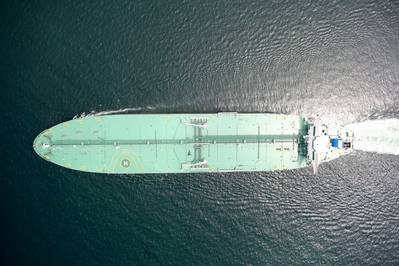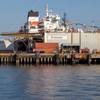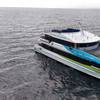Euronav Signs on Ammonia-fueled Tanker Project
Tanker shipping company Euronav on Tuesday announced it has signed onto a joint development program (JDP) to develop dual fuel ammonia (NH3)-fitted tankers.
The company said it will work alongside the world's largest shipbuilder, Hyundai Heavy Industries (HHI), and classification societies Lloyd’s Register and DNV in an effort to accelerate the development of NH3-powered very large crude carrier (VLCC) and Suezmax vessels. The initial term of the project will be three years.
In addition, Euronav confirmed it has signed contracts to build three Suezmaxes for a total cost of $199.2 million, or $66.4 million each. The ships will be delivered from the third quarter of 2023 through the first quarter of 2024.
Euronav also said it exercised an option to build a third liquefied natural gas (LNG)-ready VLCC at Hyundai Samho, in line with its order announced in April. These three vessels are scheduled to be handed over from the fourth quarter of 2022 through the second quarter of 2023.
The newbuild deliveries will be staggered, enabling the involved parties to make concrete progress toward the development of ammonia-fitted tankers, Euronav said.
Hugo de Stoop, CEO of Euronav, said, “Shipping is entering an era of rapid technological developments and increasing environmental efforts demanding strong stewardship. Working with key partners toward the safe transport and commercialization of new technologies will be instrumental in delivering benefits for the wider marine industry. This partnership will accelerate the development and adoption of ammonia as one of the key solutions for the shipping sector.”
Euronav said its new vessels will "feature a gradual and increasing degree of readiness to be converted into dual fuel fully fitted Ammonia ships at a later stage, while retaining the possibility to convert them into dual fuel LNG vessels if it would make more commercial sense."
"In today’s fast changing and volatile environment . . . it is important to remain flexible and at the same time contribute to the global effort of reducing greenhouse gas emissions which is key to its own economic sustainability," the company said.
"Emissions compliance is critical to Euronav’s stakeholders. And with shipbuilding capacity likely constrained for the construction of large crude tankers until at least 2025, Euronav believes this will deliver the company a competitive advantage within its already established sustainability structure."














